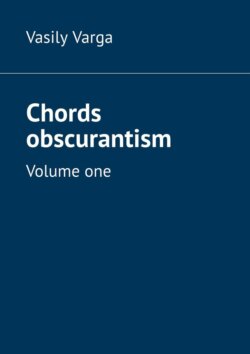Читать книгу Chords obscurantism. Volume one - Vasily Varga - Страница 5
3
ОглавлениеWe know that the Bolsheviks, especially their leader Lenin, covered their bloody tracks well. The conspirator Lenin simply has no equal. When he returned to Russia, he did not part with a woman’s dress, he tried to commit crimes with someone else’s hands. This is described in detail in the Chapter dealing with the murder of the Royal family.
Naturally, Volodya’s mother managed the educational process of her children and directed it in the right direction. Perhaps it was she who instilled in the children a maniacal hatred of Russia and the Russian people, it was from her lips that Volodya heard and remembered that Russia is a barbarous country, that it is the dung of history, that Russia is the enemy of all progressive things, it is inhabited by monkeys, which for some reason are called people that there is no one more incompetent and hypocritical than the Russian peasant.
Volodya’s brother, Alexander, also learned this well. Later, when he was sentenced to death for an attempt on the Tsar and immediately offered to write a petition for clemency, he refused with contempt, believing that the Russian Tsar was just a “tailless APE”, as his mother Maria srulyevna Blank had suggested to him in Ulyanov’s marriage.
Lenin’s mother had a father, Srul Blank, who ran away from his father, moishi Itskovich Blank. Volodya’s grandfather renounced the Jewish faith and received the name Alexander as a result of his baptism. Srul’s father, Lenin’s great-grandfather, Moisha Blank, lived in the Western part of Ukraine, in Novograd-Volynsk, where at that time there were 86 other Jewish families, engaged in trade, quarreled with everyone and constantly sued Jews. Moisha was an excellent fraudster, for which he was brought to justice. After paying off his prison cell, he began stealing hay from his neighbors. He was also engaged in snitching. He was a cruel, quarrelsome, and extremely mean Jew. He fought with his sons and arranged all sorts of intrigues in the family.
In local archives, there is information that in 1816, moysha Blank appealed to the Volyn court with a demand to take the eldest son Abel into custody for being beaten. But Abel was not harmed, since his father was caught in a lie.
The character Moishe was, do not bring the Lord! Intemperance, cruelty, ferocity, rudeness, vindictiveness, intransigence – what could be worse?
Blank was found guilty of setting fire to 23 Jewish homes in starokonstantinovo on September 29, 1808. To deflect suspicion, he also set fire to his house. As we can see, the great-grandson had something to pass on.
The spiritual slaves who raised his name to the heavens tore this information out of one of the archives, but the fact is that no country has, and can not be the only archive.
Lenin from a young age clung to the teachings of Marx-Mordychai Levi and Engels, and they, as we know, belonged to the nation chosen by God. Both Marx and Engels were notorious Russophobes and all their lives considered Russia a barbaric country. Engels advised to launch the ideology of Marxism into the wild country, obviously believing that the Russian fools would accept it with a Bang. Unfortunately, the way it came out.
Marx claimed that the Slavs were the cancer of Europe. Marx (Mordechai Levi), and then the Jew Lenin were brought up on the paragraphs of the ancient Jewish Talmud, which are simply chilling. A list of these paragraphs will be given in the second part of the book.
Perhaps, having learned this philosophy in childhood, Lenin adhered to it all his life, although he did not openly Express it, it was his deep secret, hidden, as if just in case, at the very bottom of his disfigured soul.
Only to the Russians did he openly Express his hatred, considering them second-class, “Ivanushki-fools”, fit only for hard physical work.
He really liked the phrase of Engels that it would be good to launch some kind of ideology into the dark barbarian country of Russia. And then there were the words that violence and dictatorship are a beautiful thing if they are used when they should be and against whom they should be. After all, a revolution is an act in which a part of the population imposes its will on another part by means of guns, bayonets, and cannons, that is, by means of extremely authoritative means. And if the victorious party does not want to lose the fruits of its efforts, it must maintain its ascendancy by means of the fear which its weapons inspire in the reactionaries.
